Professor David Chalmers explains his interest in philosophy and introduces some of his theories on the conscious mind.
This video was produced with funds donated by Tim Fairfax AC.
Professor David Chalmers explains his interest in philosophy and introduces some of his theories on the conscious mind.
This video was produced with funds donated by Tim Fairfax AC.
David Chalmers: I started out as a mathematician; as an undergraduate student in Adelaide and I was always interested in the really foundational questions, you know the bottom level of reality; we’ve got this idea that underneath biology there’s chemistry and underneath chemistry there’s physics and underneath all that is mathematics so that was what initially drew me in I guess as a teenage geek and then going on to University. But over time gradually I guess came to seem to me that even more fundamental than any of that is philosophy; the underlying sort of ... the underlying questions about existence, reality and consciousness. Why is there anything at all? Why do we have minds? Why is the world the way it is?
So I just got inexorably drawn in to philosophical thinking and I went overseas; I went to Oxford to do a graduate degree in maths but the whole time I was there I was just thinking about philosophy and after a year or two of that I basically decided well, I might as well ... instead of just, you know thinking about these crazy philosophical ideas of my own in my spare time I might as well do this properly and I mean it’s a long story but I ended up moving to the US and doing my PhD there in philosophy and cognitive science; the study of the mind.
What really drew me into philosophy was just the study of consciousness; it just seemed to me that this was the most interesting unsolved problem in the world. How is it that a bunch of neurons hooked up in some incredibly complicated way inside your skull? Who’s going to produce the subjective experience of a conscious mind? And I thought well, this is right now; this is the thing in science we just don’t understand. I mean 500 years ago, you know maybe I would’ve been working on the nature of matter or gravity or so on or 100 years ago on biology and life and so on but right now it just seemed to be this question about consciousness was the most interesting question in the world. I didn’t think of it especially as “Well, I want to do philosophy” I thought of it initially as “I want to understand consciousness” and philosophy seemed to be the way right now at least to approach that.
Consciousness is basically how the mind and the world feel from the inside; consciousness is your perspective on reality so we’ve got this amazing movie running through our minds all the time full of images, colours and shapes, sounds, tastes, smells but also emotions; the feeling of happiness and sadness; a stream of conscious thought; talking to yourself and so on. Consciousness is basically that first person perspective on reality and it’s mysterious because you look at the brain from the outside and as far as anyone can tell we look like, you know giant robots; the input comes in and stuff gets processed in the mind like a big computer and it produces an output and so on with these giant machines.
But why should a giant machine like that have a first person perspective on the world? Why should it feel like something from the inside? Why should it feel happy or feel pain or see colours and so on? So that for me is the mystery of consciousness. Sometimes I like to say there is three different kinds of zombies out there; there’s the Hollywood zombies who I guess are dead and brought back to life. There’s the Haitian voodoo zombies who I guess are ... they’re lacking a certain kind of free will; they’ve had this poison and the free will has been sucked out of them.
Well, philosophical zombies they’re like the consciousness has all been sucked out of them so they’re physical duplicates of ordinary human beings but without any consciousness at all; nothing on the inside so they’re like ... a zombie as far as philosophers are concerned is a giant robot ... I’ve got a zombie twin in the universe next door; looks just like me, talks like me and so on; nothing’s going on on the inside, you know slap him on the arm he won’t feel pain, won’t feel happy, won’t feel sad but he’ll react and talk just like you and just like me.
So, you know I could be talking to you, you could be talking to me and you could say “Well all you actually see if my behaviour; for all you know I could be a zombie; for all you know ... for all I know you could be a zombie; I presume you’re not. I’m conscious; I presume you’re conscious too” but it just raises all these questions “How do we know that the people around us aren’t zombies and what is it that makes the difference between us and zombies? Why didn’t evolution produce zombies? It didn’t; it produced conscious beings.
So zombies are a way of throwing these really central philosophical questions about consciousness into sharp relief. We philosophers like to talk about other possible worlds, you know with different laws of nature and different physics and so on; it strikes me there’s at least a possible world where there are zombies; where there’s someone who’s a lot like me, behaving a lot like me, internal structure a lot like me but in which there’s no consciousness. And if that’s even possible in some abstract sense; even if it can’t happen in our world that tells us there’s something importantly different about our world. There’s consciousness and it seems to be an extra part of our world.
Sometimes I put this by saying “Well, when God created the world just as a kind of metaphor he had to do more than just create all the physical structures, he had to put consciousness in too” and this is what leads me towards the idea that consciousness might be best viewed as a fundamental ... one of the fundamental building blocks of reality. Philosophy has been one of the few fields where you can actually work on consciousness and it be a respectable mainstream topic.
It’s gradually coming to change now in psychology and neuroscience; you can work on these things in an experimental way but still for someone like me who wants to take the big picture on these things if you’re working on it from within psychology or neuroscience you will be sitting at a lab, you know doing some very specialised experiments on aspects of behaviour or on certain neurones maybe in monkeys and so on and it’s only a very small piece of the puzzle at a time which is not to say there’s incredibly interesting work going on in that field for a number of people all over the world but I’m interested in kind of putting the pieces together.
So as a philosopher we sit back and we think about the big picture; we take, you know we take into account all the stuff that’s coming from psychology or from neuroscience or from physics and so on and then we sort of reflect on this from a theoretical framework and just try to put it all together and to a grand perspective; what is consciousness and how does it fit into nature? If you’re a scientist you’re allowed to do that maybe once you’re 60 and you’ve got a Nobel prize but, you know as a philosopher you can be doing this all along and I guess that was the attraction for me.
Well, I guess this is a study not in consciousness but in self-consciousness; you’ve got this artist staring at you and transferring you onto bits of paper and yeah, what do I do, I just sit there and trying not to look like too much of a fool. You know it was a fascinating process; Nick Mourtzakis the artist was standing ... sitting just a metre away from me; we were both sitting down on chairs facing each other and he just got out this ruler and started drawing lines “Like all the lines” he was saying and I just kind of sat there and I could see what he was doing and how it evolved upside down from my perspective and then maybe after half an hour or an hour he’d say “Okay, I’m done with that one, that sketch.” And get up and show it to me and I’d look at it and it would look like a big mess of extremely abstract geometrical lines. So, you know vaguely ... I’m not an expert in painting but it struck me as vaguely sort of cubist in style.
It was quite fascinating; I had a lot of good conversation with Nick during the process. He has many ideas about philosophy himself so we were talking about some of his ideas about painting and art and consciousness and what you represent but basically he had to do all the hard work I just had to sit there and see the result.
Female Speaker: The way Nick has actually drawn you there’s kind of like two sides to the portrait; there’s a big gaping kind of chasm down the middle; do you see that as something maybe of Nick’s ideas around illustrating this kind of dualism process that philosophy sometimes tends to force people into?
David Chalmers: Oh boy, interesting idea; the first time I had thought about that. I guess you’d have to ask Nick about that but I don’t mind dualities; I find them very useful to understanding things, you know as philosophers we like to make distinctions and to understand the world. You know even if two things are ultimately separate you’ve got the first ... or ultimately the same you’ve got to ultimately separate them in order to bring them together.
Okay. If I’m thinking about consciousness well, I’ve got to really make a sharp separation between what’s in consciousness and what’s in the external world; what’s in the mind and what’s in the body just to at least to separate out the phenomenon that we’re trying to study. Now, it’s possible that after separating these things then we’re going to come back to a more holistic and integrated perspective and say “Okay, here’s how this one big unified thing could be underlying the mind and the body, consciousness and the world and so on.” But we’ve at least got to make those distinctions to start with so I’m not opposed to dualities.
The idea that our minds actually aren’t confined just to the area inside our skulls or our brains but in effect extend into the environment and all the things we use when we’re thinking in our environment as tools become parts of our minds. So a simple example might be counting on my fingers, two, three, four, five, okay, five plus three is eight; I figured out five plus three is eight with the aid of my fingers and somehow these are acting as part of my thinking process if you like in doing mathematics. Okay, that’s a simple example but now with computer technology and so on this is really going crazy so all of us these days use a mobile phone; here’s my iPhone; this iPhone is now basically serving as part of my memory.
You know we’re used to the idea that we look up phone numbers on the phone. Well, basically, you know we used to have to remember phone numbers with our biological memory, now the phone does it all ... in effect the iPhone is serving as my memory. And you might say “Okay, well, it’s a tool that I’m using” but the thesis I’ve tried to put forward with my colleague Andy Clarke and work on this is to say “No, literally actually what’s happening is your mind is now extending into the world and the iPhone is becoming part of my memory; it doesn’t make any difference whether it’s biological memory inside the skull or a phone outside the skull if it’s doing the same job it counts as part of your mind.
Likewise the Internet, Google and so on; all of these can be seen as, if you like as part of my extended mind and as we’re becoming more and more integrated with the technologies around us I think you can see our minds, our brains in a way is leaking out into the world in this very interesting way. Like everything; technology has good effects and bad effects; it can be used for good and it can be used for bad but I guess I tend towards the optimistic side. People say things like, you know “Is Google making us dumber?” You know it’s like we used to be able to do this stuff in our head; we used to remember stuff and now we use Google and we have to look it up so it’s a crutch. We used to remember phone numbers now it’s all on your iPhone.
Well, once you adopt the perspective of the extended mind it’s no longer quite so depressing; I’ve actually got a better memory than I used to have. I can remember many more phone numbers than I ever could in the days before the iPhone because I’ve got this little portable memory that goes around with me and enables me to remember all kinds of stuff. Likewise Google makes me much more knowledgeable than I used to be; I’ve got all this knowledge at my fingertips in effect as if it was inside my brain; I think that’s basically raising my knowledge base and making me smarter. Now of course there’s potential downsides; so just say my Internet connection goes down well, so much for Google and I’m probably back below baseline.
I leave my iPhone at home and my memory’s not so good so I guess our minds are maybe made a bit more vulnerable to loss but when things are working right and you’re hooked up to the world I think, you know it’s not clear to me that we should see this as a negative; I think it’s a positive. The thought that we’ve got this brain at the centre but then we’ve got all these tools we’re interacting with that serve to extend the brain itself. So I suppose once you get rid of the brain and, you know the big ... the core of me then as far as the extended mind is concerned there’s not going to be much of a mind left but there will be all these traces as you say and from all these traces of me, writings, film and so on maybe people’s memories and so on maybe there’s the possibility of reconstructing our mind from that and maybe that is our best route to immortality.
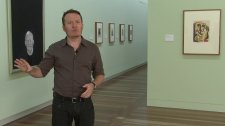
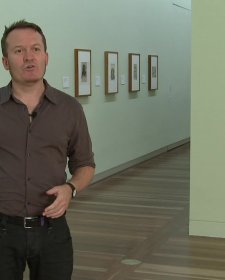

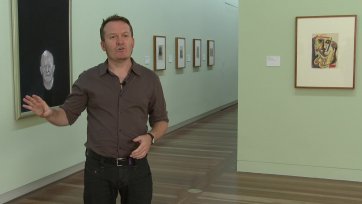
Portraits of Australia’s pioneering psychologists and artworks by artists fascinated by the subconscious mind.
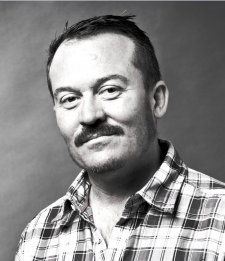
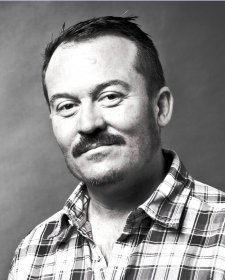
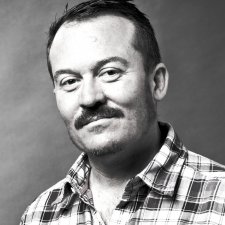
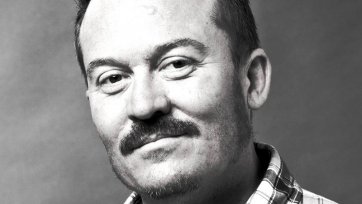
Dr Christopher Chapman NPG Curator of Inner Worlds explains the development of an exhibition that spans from Surrealism to contemporary art.



Drop into the Gallery any time for free creative activities inspired by artist Thom Roberts and his exhibition, The Immersive World of Thom Roberts.